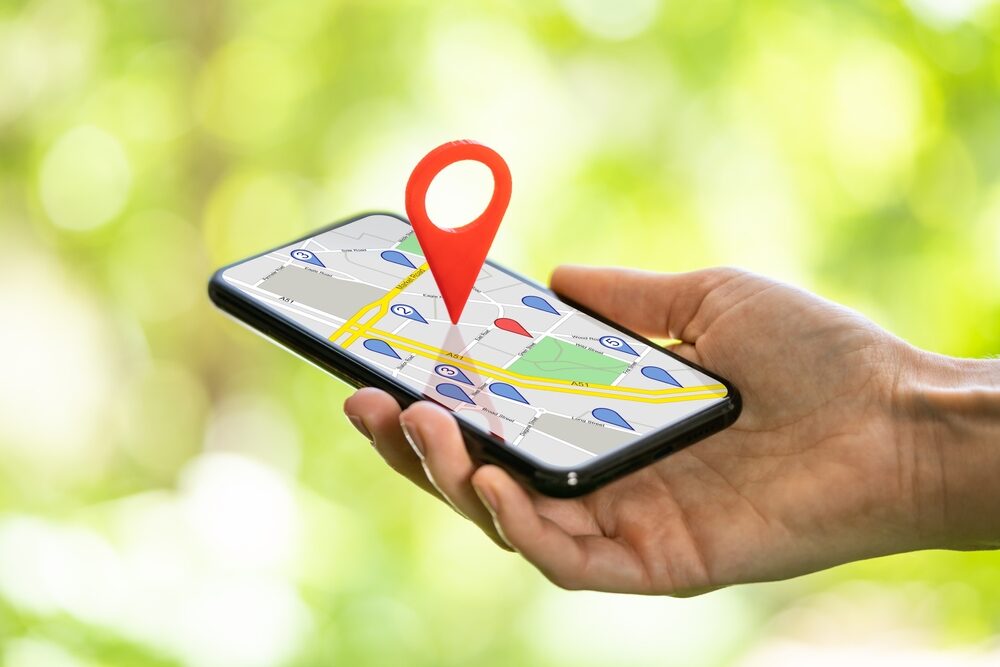International SEO is the practice of optimising your website so that it can be found on the search engine results page in different countries.
This specific type of search engine optimisation is vital if you want to expand your business overseas because what works in the UK won’t necessarily work in another country.
There is a wide range of fantastic reasons why an international SEO process is a good idea, from the obvious increase in the audience to the potential leap in profits.
To be successful, a global strategy venturing into a foreign market needs to be extremely thorough and well thought out. Done wrong, it can severely hamper your existing digital marketing plan.
- What our process is as a global SEO agency.
- Why it is so important to have a digital presence overseas.
- The key things to look out for when strategising a worldwide expansion.
- Whether international SEO is something you should pursue or not.
- How to build international backlinks.
Get in touch.
At Embryo, we’ve helped several clients expand their online presence in the international market. From producing country-specific copy through our content team, to completing quality site migrations.
What is international SEO?
International SEO is all about getting your domain to a place where it can be crawled and indexed in the country in which you’re targeting. Acquiring traffic from other countries is more than just translating your content, it’s about structuring your entire domain in a way that search engines implicitly know ‘where’ your website is. That’s where our technical SEO experts play an important role.
Some quickfire advice about global search engine optimisation:
- It’s a multi-year project to create dedicated websites that target individual countries, be aware of that from day one.
- Optimise your content for every version of your website. Target keywords will be different, even in English-speaking countries, and you need to create content that reflects that.
- Leverage social media to complement your long-term SEO work in all languages.
- Regularly add fresh content to each site.
- Devise link-building strategies for each country.
According to CSA Research, 40% of global customers will refuse to buy something from a site if it’s not in their native tongue. This is to say that if you are looking to sell abroad, but don’t have the websites, domains, or URL structures in place to successfully translate your content and rank for keywords in other languages, you’re not going to.
Each country you look to target using international search engine optimisation should be given its unique strategy to go off. There are too many idiosyncrasies, intents, differences, and cultures to create one blanket global plan.
Getting your website to rank in other countries requires time and effort, like any other type of digital marketing that focuses on ranking for keywords. Hundreds of companies in the UK – big and small – will more than likely organically rank for international keywords in countries that speak English, this is pretty natural.
This incidental ranking isn’t what global rankings are about though, even in English-speaking countries, the types of searches and the intents behind them are entirely different.
There are also lots of businesses for whom international sales make up a huge proportion of their total revenue, many of whom could be your competitors. And, like ‘regular’ aspects of SEO services, there is a huge opportunity for small businesses to leverage the opportunities that are presented by capturing foreign organic traffic.
Done right, large organisations can be leapfrogged by up-and-coming businesses. Every single country is a specific market packed with opportunities.

Global website optimisation
Companies can expand their international presence in several ways. They can set up a country-specific separate domain that is based in a certain country such as Italy, the Czech Republic, or Norway – the URL structure in this instance will have the country code after the company’s name. Alternatively, the company can have one international domain in which it can have multiple directories. Sites with .com, .net, or .org are examples of this.
For a lot of organisations, duplicate content issues are a real problem as is ensuring that the site loads and delivers the right alternate versions to specific countries. The technical side of your website must be optimised because Google, Bing, Yahoo, et al will use indicators from headers, the web address, and other factors such as the content-language meta tag to deliver the right localised content to the target country.
International link building. A must.
The importance of building a strong profile of links pointing to your website or a specific page is as important for ‘regular’ search optimisation as it is for global SEO. Citation building becomes much more technical and nuanced when going global because there are plenty of factors such as the location and language source of the link itself. You can’t rely on the backlink providers that you use for your site that’s located in the UK, you need to build entirely new relationships in that target country because search engines will only rank your site in that target market if the backlink profile is filled with links from sites in that target country.
Overnight success? No way.
Whether you’re a major business in America looking to target European countries or a small E-commerce business in the north of England looking to expand into a new location, there are dozens of considerations to think about that will have a positive impact on your SEO if done right, and a negative effect if its rushed or done wrong. A multi-lingual/multi-site approach that is different from country to country can have huge ramifications on your long-term digital marketing strategy. You must have got a thorough strategy in place to mitigate these ramifications.

Here’s an example to help bring the idea to life:
Imagine you’re a car leasing company. Up until now, you’ve successfully operated in the UK and your website ranks well in your native language. However, you also know the European market and have been thinking about extending your services to France, Germany, and Spain too.
Before you can expand beyond the UK, you need to rethink the language surrounding your services and the way they’re sold to your customers.
First of all, you can’t still reference your service as “car leasing” – that’s great for your UK market, but your new French, German, and Spanish target markets aren’t going to be using this as a search term.
Instead, you need to be offering “location de voiture”, “auto-leasing”, and “alquiler de automóviles” respectively. By doing this, you’re already making your business far more accessible to different markets and you’re immediately increasing your user value in multiple countries.
Of course, you won’t be able to do this all on one page – it’ll get very confusing if your page fluctuates between languages at random intervals. This is where the technical changes become so important. Link structure, content optimisation, language tailoring, and so much more are all key factors that need to be considered to ensure that your approach works effectively.
Our process as an international SEO agency
Global SEO can seem daunting but don’t let that put you off. If your company has the right infrastructure in place and is ready to expand internationally, the results can take your business to new levels of profit, reputation, and revenue.
The process of creating a truly worldwide SEO presence can unlock new search volume on target keywords that will bring you increased business. By expanding abroad, your market share will naturally increase and you can, if done right, target underserved areas where demand is high and supply is low.
Having expanded the online presence of dozens of businesses since we were founded in 2015, Embryo is perfectly suited to create international sites that hit all the ranking factors and grow your organic presence.
Understanding who you’re up against in the digital landscape of any country that you’re targeting is, along with keyword research, the first step in the international SEO journey. Your competitors in the UK may be entirely different to those in India or Argentina. In addition, the businesses that you may not immediately think of as competitors may have a greater digital presence than you, and vice versa.
When undergoing competitor analysis pay attention to the types of keywords that they rank for which you don’t, the amount of traffic they get for specific keywords plus the total number of terms and phrases that they rank for. This latter one will give you a good idea as to other terms that you could potentially target that you may not have thought of.
Treat each country with the same level of analysis and go as in-depth as you can with each one. These potential markets all have their nuances, idiosyncrasies, and behaviours and will all have an impact on how you write content and optimise your site.
Like any search campaign, keyword research is the first step to ensuring a good level of ROI in a reasonable amount of time. When it comes to targeting an international audience, real thought needs to be given to the keyword strategy.
Beyond just the language barrier, the intent of a key term in one country will be entirely different in another. Thorough research will ensure that the type of work created will satisfy the intent behind the international keyword that you’re looking to rank for.
For example, in the UK, the people who represent citizens in court are called barristers, whereas in the US they are known as lawyers. This is just one instance where proper research needs to be carried out before you create landing pages, content, and imagery, by not doing it you’re setting yourself up to fail before you’ve even set anything live.
We’ll begin by looking at your current rankings and then spend time expanding the keyword lists for the different countries, based on search volume and SERP (Search Engine Results Page) features. We’ll use a variety of tools to examine how those phrases are searched for in different places, whether they speak English or not. We take into account vernacular, slang terms, and units of measurement to create an accurate set of words that we can go after in your target country.
Tools such as Ahrefs allow us to see the search volume for translated keywords in different areas of the world. For instance, let’s say you sell CCTV Cameras and want to expand where you sell them to France. We can view not only the French translation for terms such as ‘Security Cameras’ and ‘CCTV Cameras’ but also see their search volume, what the intent behind that search is, and how best to rank for it.
This allows us to determine which markets are worth going after and spending your investment on.
Once our research into the phrases and terms is complete, the next step is to determine the types of content we can create that will get you a ranking for that country-specific phrase.
Through our research, we’ll uncover the types of questions people are searching for to do with your product or service. We’ll look to answer that as part of our content strategy. Beyond that, our work goes into much greater depth, with global search work it’s important to determine if you’ll optimise your pages based on language, location, or both.
You could choose to focus on just language which would mean creating relatively similar content for every page on your site for each language you wish to target. This involves creating a prompt when a user lands on your site from which they select their language and are set to a specific URL that is written for them. The second option involves aiming content at countries and languages where you create separate sites that are specifically for the country and its native languages. This alternative version would involve separate sites with different URL structures, determining the content you’ll provide with the impact you structure site(s) for international SEO.
Identifying countries that bring you a lot of traffic or links to your site without your optimisation efforts is a good way of not only determining the type of work to do but also can inform you about which countries to target. It’s vital with this type of search work that everything is predicated on data, you need to know there is a demand for products or services such as yours before you optimise for that country.
You cannot afford to just write your content in English, translate it through a machine, throw some keywords in there and expect it to work. Put yourself in the customer’s shoes. Imagine if you landed on a site and it was written in what appeared to be broken English – your trust in that website would plummet very quickly.
What works in one country, will be, at best, incorrect and at worse, offensive! Both of which you want to avoid. If you’re a company that has product descriptions or uses technical language then the need to organically create content in a specific language increases even further as the need for specificity increases. Language is so complex and is packed with microscopic differences which can be the difference between someone trusting your site and not. For instance, the use of the word ‘you’ differs vastly across places such as Italy and Germany. Simply copying and pasting your content into a translator into these languages is not enough.
This part of the process can be very complicated and is often the moment when businesses abandon their global SEO project. Choosing the URL (Uniform Resource Locator) structure is an important step and will impact – for better or worse – your global online presence for years to come.
Essentially there are four types of URL setups, which are:
ccTLD Domains
A ccTLD stands for Country Code Top-Level Domains and is essentially the two letters that are assigned to your website’s URL. Some businesses will opt for this choice when they want to create different websites and customer experiences for different countries. In the UK, the Country-Code Top-Level Domains is ‘.uk’, in Spain it is ‘.es’, and in Ireland, it’s ‘.ie’.
gTLD Domains
Generic Top-Level Domains sound more complicated than they are. gTLDs are those URLs that aren’t unique or bound by a region. The most prominent example of this type of URL is ‘.com’, which is maintained by IANA which stands for the Internet Assigned Numbers Authority.
A certain popular search engine will view a gTLD structure and not restrict its presence on the SERP to region or language. It will be available for everyone to view, effectively. This is fine if you want to cast as wide a net as possible over your target audience, but, it could have a negative impact if speakers of different languages prefer a website with a country-specific top-level domain.
ccTLD or gTLD with subdomains
A slightly different option to the first two involves adding elements of ccTLDs and gTLDs within subdomains. Here, you appear to get the best of both worlds by leveraging the advantages of the gTLDs and the country code that comes with the ccTLDs.
Websites that have the country code before the main part of the URL have opted for this route.
ccTLD or gTLD with subdirectories
The subdirectory version is the opposite of the subdomain version. Instead of having the country code before the main part of the URL, it comes after.
Which URL structure is right for me?
The advantages and disadvantages of global search URL structures are a topic that could take up quite a few chapters of a book. This is to say that there are many pros and cons, and dozens of features you need to consider.
The one that is right for you is the one that maximises your company’s online presence in the countries in which you want to do business. Broadly speaking, having an entirely different website targeted exclusively at, say, French speakers or German speakers is one of the most obvious signals to search engines that you want to rank in that country. The drawback to this is that you need to create an entirely new site which can take a very long time. In terms of convenience and ease, a gTLD with language parameters is probably your best bet as you don’t need to build/invest time in creating a new website in the correct language. On the other hand, doing this sends a pretty weak signal to your Googles and Yahoos of the world.
Your decision will ultimately depend on how much of a dent you want to make in those potential markets.
An essential component of your international SEO plans, the Hreflang tags allow you to show search engines the relationship between X page and Y language. Essentially, these language tags act as the bridge between the translated content variant and the person from that country who is searching for the query you’re ranking for.
As necessary as Hreflang tags are, they are not a solid directive, as an SEO signal, they mainly act as a road sign for Google’s crawlers. There are a lot of other ranking factors which impact and even override this language tag which is why you should consider it as part of a wider set of global SEO best practices.
If you created a Hreflang tag for French content that you’d written for an alternative homepage it would send signals to search engines that the IP address of the user, which they presume is from a French-speaking country, would be better served the French version of the copy that you’d written, as opposed to the English content.
A properly structured Hreflang tag can help decrease the bounce rate and increase session time because you’re providing the user with the correct information, in their native language. The theory goes that the user is more likely to convert because they’ve been given the best user experience. Going deeper, you can set these tags to recognise localised variations in language. You could target Brazil for instance with a tag that took into account the fact that the main language is Portuguese but the content has been written with Brazilian idiosyncrasies in mind.
With this tag, it’s important to keep two things in mind, they are:
- Where you put the tag: You should only place it once in your URL structure, either in the on-page markup, the sitemap, or the HTTP header.
- What the Hreflang tag looks like: The tag that appears on the page should include all the pages that serve as an alternative to it. If you’re looking to target more than one country with that specific page, the tag should reference that in the code.
I want to learn more.
Book a 30-minute consultation with our team to learn more about our global SEO work. Call us on 0161 327 2635 or email us at info@embryo.com
What does international SEO do for company websites?
Creating websites, domains, or content by country can do an enormous amount of things for your company’s websites. With international SEO you can create bespoke content that targets a new foreign market and create international websites which are filled with localization signals to search engines telling them this site is perfect for people from a certain area.
International SEO strategies are all about seizing an opportunity. The thing about maximising your global internet presence is that, in many instances, competitors won’t even think to do it for themselves. This is especially true if you already receive global attention without having done any optimisation. That is one of the biggest positive signs that you should invest in worldwide search engine optimisation.
This lack of interest in this particular type of optimisation gives you said opportunity to seize. Sure, there are competitors in the countries that already have a market share but that’s not to say there isn’t an opportunity to increase global revenue.
Conversely, if your competitors in your home country are already selling globally, you really should be considering reactively implementing this type of digital search marketing to keep pace with rivals.
For ECommerce sites, global SEO is a no-brainer because it opens up your potential market size two, three, or even fourfold. Some of the biggest companies in the world rely almost entirely on international markets and sales mainly because of revenue but also it allows them to spread risk and provide long-term security. If you’re selling in 20 countries in Europe, it’s less of an issue if you fail to sell in five of them as opposed to putting all your eggs in one basket (country) and that not working out as you’d hoped.
Opting to invest resources into growing your website’s online presence in different countries won’t succeed overnight. However, if you deal with the two fundamentals – the content marketing and the back-end technical SEO side – increased profits and brand awareness will follow in time.

How can you build local links?
The principles of citation building apply to every country as do link-building strategies. It needs to be done authentically, targeting genuine sites with high domain authority, and should be about building relationships.
As with any sort of link building, this takes time and costs money depending on who accepts links on their websites. Businesses must research, research, research. Finding five websites from the country that you’re targeting which accept well-written guest posts with one or two backlinks in them is far, more effective for your long-term international SEO than spamming forums or link farms that are based in countries you have no interest in selling to. This is the same with local and national SEO, and it is with global.
One of the best ways to grow your international backlink profile is to create valuable long-form blog content for websites in the country you wish to target. Now, crucially, if the country you’re targeting doesn’t have English as its main language, you’re going to need to employ/hire a translator who can create the content variant on your behalf in the default version of that region.
When it comes to international SEO link building a lot of English speakers think they can skip the ‘hiring the writer who is fluent in the language’ part, and simply write the content, translate into Google Translate, and post it. This is the wrong way to go about it. You have to treat international link building the same as you would national citation creation.
Beyond just creating good content to send to websites in that area, be sure to research what kind of backlinks the competitors in that area have. These can be pretty easy to find, you just need to use Sistrix or Ahrefs to view their backlink profiles. Once you have a list you can simply scan through them, discard the ones that are spammy and target the sites that look and sound authentic.
Another way to get natural backlinks from URLs ending in the country code you’re targeting is by ensuring you get them when you take part in events, interviews or other marketing-related things.
Ensuring that your marketing team is aware of the need to earn backlinks as well as grow the brand awareness will help to ensure that as well as the exposure you get from doing PR or events you’re also getting the SEO benefits. Outreach to podcasts, TV studios, radio stations, and industry publications in the country/area that you’re looking to target and ask if you can appear. Places like these are desperate for content and are constantly outreaching out to people for comments, what could be more exciting for them than to have someone come to them with content.
This is where digital PR comes into your international SEO strategies. Leveraging media lists and the relationships that PR people can and have built with journalists can help you grow your online presence in a specific country. Cementing these relationships can ensure a steady stream of backlinks because you’ll be the first company that journalists go to when they require a comment.
Why should you care about global SEO?
Every business that aims to grow globally needs to pay attention to international search engine optimisation at some stage. Not doing so puts a ceiling on your business’s reach.
Whether it’s today, tomorrow, next month, next year, or 10 years from now, there’s a chance that you’ll want to take your company to new territories to continue your expansion. If you’re already set up for this growth, you’ll find it much easier to start gaining authority and making yourself a household name in those new areas. However, starting from scratch can be a different experience – one that takes much longer and leaves you stuck behind several well-established industry leaders who have dominant positions in your new target locations.
Priming your website for worldwide growth can seem like a daunting task when you aren’t an SEO expert, but you don’t need to worry – our team’s on hand to give you the information, guidance, and technical international SEO strategy that you need.
Before we get started, we’ll need to get to know you and your business a little bit more – by understanding your business, your industry, and your competitors, we can formulate a bespoke strategy with targeted ranking opportunities to increase your visibility as quickly as possible.
The best time to get started on your quest for greatness is today, so don’t miss your opportunity to get in touch – this may be the start of your greatest chapter yet…
The benefits of partnering with Embryo don’t end there either – our talented team expands into several different fields of digital marketing, giving you a full-service experience that increases your touchpoints and visibility across the board.
Search engines value your ability to “show up”, and there’s nothing that helps you to do this better than a multi-channel approach.
Give us a call or fill out our contact form to learn more about how we can help you to dominate the SERPs with our intelligent use of SEO, Digital PR, PPC campaigns, and Social Media presence!
What is the difference between international SEO marketing and local SEO?
There are many differences between how international and local SEO works. The biggest difference is that while both types of SEO work to improve rankings, they do so in different ways. For example, local search engines are optimised for finding businesses within a certain radius of an address. In contrast, international search engines are designed to find companies around the world.
International SEO
With international SEO you’re targeting a list of keywords that is in the context of a global environment. This environment creates a huge number of variables that aren’t found in local SEO such as keyword volumes country by country, international competitors, and nuances in language. Global SEO does open you up to new customers and allows you to leverage the benefits of search engines in other countries, not just your own.
International SEO is relative to the company too. For instance, if you’re a business in France looking to sell products in Spain, you’d be carrying out global search engine optimisation and, potentially, competing with Spanish businesses that are working on local SEO tactics.
Local SEO
Local SEO is the practice of optimising your website for the area in which your business is based. This type of search-based marketing is much smaller in scale but can have a relatively big impact on businesses if they have no interest in expanding abroad or don’t have the infrastructure in place to do it successfully.
Regional or location-based search engine optimisation is also good for leveraging parts of Google’s algorithm by promoting their brick-and-mortar locations using the Google My Business (GMB) account. If you’re selling these products online, people in that region – thanks to their IP address – will be served your business nearer the top of the search engine results page because you are providing the most relevant search for them.
Choose an SEO strategy that works for you.
Worldwide search engine optimisation predominately aims at ranking for large-scale keywords that are being searched by people across the world (with the caveat that you can carry out international-local SEO in regions of countries that you don’t live in). This is in contrast to local SEO which focuses on ranking for specific keywords that are relevant to your location and the one in which you want to do business.
For instance, if you were a plumber in Manchester and you ranked for ‘plumbing services’ you might get a lot of traffic from the thousands of people globally who search for that term. However, ranking for this term may not bring you a lot of sales because people will want to pay for someone that is near them. This is why ranking for ‘plumbing Manchester’, ‘plumbing services Manchester’, or even ‘plumber near me’ is a far more effective local SEO strategy.
Working with an expert global SEO agency such as Embryo can ensure your spending is going to the place where it’s going to provide you with the most return on investment. By carrying out extensive keyword research, an competitor analysis and understanding your globalisation strategy, we can help build an effective plan.

I want to invest in international SEO.
Get in touch with our digital marketing experts – they’ll be happy to help you with worldwide SEO strategies.

Why global SEO is important
Global SEO is important if you’re a business that is interested in expanding your company across the world or in specific countries. Going global online involves a great deal of investment and time, it shouldn’t be undertaken lightly.
That’s not to say, however, that international SEO isn’t important, especially for those businesses that have the capacity and opportunity to dominate potential markets. Unless you have a brick-and-mortar location with absolutely no e-Commerce element to your business, there’s a good chance that at least a small percentage of your sales come from abroad. This is more than likely incidental, nevertheless, it’s an important signal that there is a desire by people to purchase your products and services. International SEO can break down borders and language barriers and allow you to attract business from all across the world.
Being present in other countries just allows you to do more, sell more, and take more of the market share. Its benefits and importance of it are extracted when the process is carried out correctly. This is to say that your international SEO strategies should be global in theory and specific in practice. Yes, you want to rank globally and attract French speakers, German speakers, and people all across the world. But, to do that, you have to create strategies for specific countries to benefit globally.
Optimising your site, or separate websites, for a global audience is in some ways a reaction to how the internet has created a borderless e-Commerce internet landscape. 3 out of every 4 people that use the internet will use a search engine, making the need to be seen online more and more important. To run truly global E-commerce sites, worldwide search engine optimisation has to be at the heart of your business strategy.
As well as making your site more visible, global SEO can also provide you with a mountain of data that you can use to make smarter, more informed decisions. By marketing to more people you can glean a more accurate picture of how well your website performs and at what stage people make decisions, abandon their cart, or bounce from your site.
Do you need to go international?
While having an internet presence in your local area, or country, is pretty much a necessity for virtually any business, going global is a different story. Working out if you need to go beyond your borders and market to people in other countries, in their native language, is a question you do need to ask yourself.
Whether you need to invest in an international SEO strategy entirely depends on your long-term goals. If you don’t have any plans to increase your sales overseas and are satisfied with the market share you have in your local or national area then opting to invest in a global online presence won’t work and will most likely harm the way you do business.
Why? Well, as well as taking resources away from your well-performing local or national SEO strategies you can also completely ruin the progress you’ve made from a user point of view. Suddenly changing your website to appeal to an international audience (that you may not even know are there) is going to put a lot of people off who came to your site for the local and relatable content you provided them.
If you are looking to expand beyond your borders then it is certainly worth, at the very least, exploring the possibility of worldwide search engine optimisation. If you are looking to do it it’s important to be thorough. The reason for the thoroughness is that you’re going to be a small fish in a massive pond, one that is filled with competitors from all across the world, or at the very least, a country or two.
This admittedly daunting prospect is the reason you need to be comprehensive, both in your strategy and your investment. You’ll be competing with competitors who’ve never heard of you and have well-established SEO plans in place for their local area, the one you’re targeting.
Even if a business is set up to target countries abroad, they’ll be hesitant simply because it’s unknown. However, organisations should think of worldwide SEO as an enhanced version of geo-targeting. Rather than targeting a city or a region, you’re ‘simply’ targeting a nation.
Assess your current business infrastructure, capacity, staffing levels, capabilities, and, frankly, your desire to invest that amount of time and money into it, before you decide on whether or not to jump in with both feet.
Is international SEO worth the effort?
The short answer to this is yes. If you are looking to grow your business globally, international SEO is worth every moment you spend on it.
As of 2022, 92.96% of global online traffic runs through Google, making it the most widely adopted search engine worldwide. If you are hoping to achieve an international presence for your business and commandeer some of Google’s reach, international SEO is not only worth it, but it is an absolute necessity.
To give you an idea as to why international SEO is worth it, the car company Ford makes 36.7% of sales in international markets, by investing in international SEO, allows small businesses to compete with well-established international brands such as Ford.
To determine if international SEO is worth it for you, ask yourself the following:
By using SEO tools, such as Google Analytics, you will be able to determine if you are receiving any international traffic already. If you are, investing in international SEO will help boost this.
Using Google Analytics, you will be able to see exactly which languages people view your website.
If you find that your competitors have a strong audience in a certain country, it stands to reason your business needs to be there too.
Before setting any wheels into motion, it is important to make sure you have the infrastructure and procedures in place to be able to serve your customers correctly. This includes product production, packaging and shipping. If you do not have these in place in time before your international SEO strategy takes off, your business will suddenly be reaching an audience you can’t logistically accommodate.
Taking your SEO international is an investment. This is why you need to make sure that not only do you have a good international SEO agency to help you on your quest, but you also have enough budget to make it worthwhile. After all, SEO is a long-term marketing strategy, not a short-term growth solution.
You build local links by writing local content and articles. A good SEO agency will be able to determine if they can build local links as part of your international SEO strategy. If they do not do this, they may not be the international SEO agency to go with.
Should you target language or country?
When getting started with international SEO, one of the first big questions you’ll come up against is whether you should target the language of your users or their country of origin. Unfortunately, the answer to this question is not black and white!
Targeting by language
Targeting by language is usually the preferred option if your product offering is the same across different countries and regions. It allows you to keep all of your business on one website and not have to pay for new site structures or domain migrations. It’s generally considered to be slightly easier to target by language in the short term, and it is also a better solution if you don’t have that much traffic volume in a region.
You can target by language in one of two ways: subdirectories (website.com/en/) or subdomains (en.website.com).
When targeting by language, it’s important to ensure all the content on that part of the site (including headers, footers and menus) is translated. You should also avoid using automated translation services, and instead, make use of local copywriters and content specialists – higher-quality, better-optimised content is just as valuable in every language.
Targeting by country
Targeting by country is a bit more complicated, but it is one of the strongest signals you can give to Google and other search engines about your location and the users you want to target. This strategy also makes marketing easier in some ways, as it’s incredibly simple to divide your offers, branding and promotions per area.
Targeting by country requires the use of ccTLDs (or country-code Top-Level Domains), which means you’ll have separate sites for www.company.co.uk, www.company.fr, www.company.es, etc. This also sends strong trust signals to users – they’ll be able to identify you as local to them, and therefore more relevant and trustworthy.
However, targeting by country is more work, as you will need a separate SEO strategy and website for each country you want to target. This means separate hosting and maintenance costs. None of the authority from your existing website will be passed onto the new country’s site either, which means you’ll have to start from scratch with no domain authority.
What localisation factors matter most?
Localisation factors refer to the process you go through to make sure the content and website. There are four things a good international SEO agency would consider when looking at this.
Accuracy
It is necessary to take the time and make sure the translation of the content you are localising is accurate – this means everything from the keywords to the slogans on the site. Translation can be tricky and open to interpretation so it is important to make sure you get it right from the start.
Local formatting
Amidst the changes being made to the site to make it appeal to your target country, it is easy to neglect to format. This includes combing through your content and making sure certain aspects, such as how the dates are written, are altered to suit the country you are looking to service. For example, both the UK and the US write the date differently and favour different units of measure, so you will need to ensure these are reflected across both versions of your site correctly.
When it comes to localised formatting, addresses and telephone numbers are also important considerations. Phone numbers in different countries will have different area codes. Some street names will also be laid out differently, as will postcodes, depending on the country you are targeting
Common use
Another thing you need to consider when localising your site is slang and colloquialism. Certain phrases and terms simply do not fit exactly word for word in certain languages. To combat this, you need to look at how local people in the countries you are hoping to target speak. You will need to research how your products or services are described in that region – or hire a writer or translator who knows the local dialect. You will then need to adapt your content accordingly.
Cultural sensitivities
Not only is it important to make sure the language you use on your website fits the culture of your target audience but there is also the additional layer of needing to make sure you are being sensitive to the culture of the country. This consideration extends to both the phrases and images you use for your site and campaigns. A good international SEO agency will take the time to research the country and get a feel for the local population and the market before rolling out your campaigns
How to implement global SEO:
In international SEO, your regular keywords may simply not be good enough. While you may be currently ranking high for certain keywords on your home turf, these same words will likely require strategising before entering a more global market. As keywords differ between regions, you will likely need to run local campaigns specific to certain regions with your strategy – including target audience and campaign wording – being tailored for each location.)
It is no longer enough to look at the country in terms of worldwide numbers. Instead, you need to focus on a local strategy as the search behaviour surrounding your keywords will vary depending on the region and language. This is especially important for countries where the population covers a mix of languages, such as India.
For your international SEO strategy to be successful, you will need to focus on how different regions search for your services and products. You cannot assume everyone in the country will search in the same way. If you simply use the direct translation of the phrase or keyword, it will not have the desired effect. This is where an international SEO agency comes into play, as they have access to certain tools to help determine this.
If this is something you are interested in, contact our sales team today.
High-quality, unique and authoritative content is just as important in every language as far as Google is concerned. Translating your content requires not just technical expertise but also flair and creativity to ensure you’re meeting the needs of your users as well as Google’s EAT (Expertise, Authority, Trustworthiness) requirements for quality content.
Particularly if you’ve invested heavily in long-form content on your original website, it can seem like a mammoth task to translate all of this, which is where it can be tempting to use auto-translate tools to move your copy over to international sites. However, in this case, the investment associated with working with experienced translators and/or native-speaking content writers is well worth the effort.
Manually translated content with proper phrasing and grammar in the target language is not considered duplicate content, and you won’t receive any penalties from Google for using the same content translated. However, using auto-translate tools can cause you issues with duplicate content. Plus, if your auto-translation is inaccurate or doesn’t make sense in the new language, your content and website might also get flagged as spammy, and potentially even become blocked.
Regardless of the language change, it is important to make sure the quality of your content remains intact when migrating to a new country’s website.
While mobile uptake is different between regions, Google’s attitude is not. Mobile-friendly and mobile-first websites are and will continue to be, prioritised by search engines.
Just like your regular SEO campaigns, international SEO requires an exceptionally well-optimised website for both desktop and mobile users. Key elements you’ll want to consider before launching any international website include:
- Responsive design – This is a design that moves and resizes content, menus, images and other website elements intelligently depending on the window/screen size your visitors are using.
- Content design – It’s important to structure your content based on how users are likely to engage with your site, making your site easy to navigate and the content easy to digest.
- Pop-ups – On mobiles, in particular, pop-ups can be a user experience nightmare! Ensure your pop-ups are disabled, or at least easy to exit, on mobile devices so your users don’t get caught in a bottleneck on your site.
- Website speed – The faster the better where speed is concerned! Faster websites, particularly on mobile, are favoured by both users and search engines.
- Button sizes – Keep an eye on the sizes of the key buttons on your site to make sure users on mobile can easily use them too.
Make sure you’re regularly updating and testing all of your sites on mobile as well as on desktop.
As we’ve already examined, the Hreflang attribute is a key indicator when using different languages on your site.
The Hreflang attribute tells the search engine what specific languages you’re using on a page. This tag will signal to the search engine that a user searching for something in “x” language will want their primary search results mirrored in “x” over pages with similar content written in “y”.
By adding the Hreflang attribution to second-language content you’ve written for an alternative version of your website homepage, you can help reduce bounce rate and improve the user experience. Offering locally-focused content in your target language is a big trust signal for users in different language regions.
Hreflang tags aren’t the be-all and end-all of international SEO, but they are an important signpost along the way, and so should be a key part of your overarching international SEO strategy.
Hreflang Tag Example
An Hreflang tag for website content in French would look like this:
<link rel=”alternate” href=”http://website.com/fr” hreflang=”fr-fr”/>
Monitoring and measuring the results of your campaigns are just as important when talking about international SEO as local SEO, if not even more so!
Accurately tracking campaign progress is one of the most significant ways you can measure success when starting international SEO. You can use this information in a myriad of ways, including identifying areas of success, areas for improvement, and areas with the potential to expand and grow.
When it comes to monitoring and measuring the effectiveness of your international SEO strategy, there are a number of things you should be doing to ensure you’re getting all of the relevant data you need:
- Measure everything before, during and after the migration process. Regardless of the strategy you’re using, having a strong baseline from which to measure your progress is incredibly important to an effective global strategy. This also allows you to see any areas that are growing or declining throughout the process and identify any issues quickly.
- Ensure you’re accurately tracking your page rankings. There are thousands of different nuances within even expertly translated content that can affect the overall rankings of your pages. Errors here can reduce your relevancy and hurt your rankings, which is the opposite of what you’re looking for! Tracking page rankings also means you can quickly identify any issues with your hreflang tag implementation at any stage.
- Measure success through a range of other digital channels. As the online landscape continues to evolve and become increasingly integrated, keeping an eye on a range of channels can provide pointers on how your organic SEO is performing. Social media channels and accounts for new regions can be a good indicator in situations like this!
- Don’t just rely on organic traffic. SEO, as we all know, is a long-term organic strategy, and it often takes some time to gain traction, particularly if you’re starting from scratch in new markets. In the interim period, pay-per-click (PPC) can be incredibly valuable for getting your business in front of new users in your territories, and also offers useful insights. Measuring success through PPC can give you some universal indicators on how your website is performing as a whole. Using these measures, you can also better understand search behaviour and conversion rates in your new markets.
Conceptualising, building, and executing an entire international SEO strategy isn’t easy. As we’ve seen by now, there’s an exceptional amount of thought, care, labour, and investment required to effectively carry out an expansion into international markets.
Before starting the process of moving into international SEO, business owners should carefully consider who will be responsible for the process within their organisation.
If you have a large internal marketing team dedicated to supporting and maintaining your SEO already, you may be able to carry this out in-house. However, if your team is already stretched thin, it may make more sense for you to work with a specialist international SEO agency. Agencies have all of the expertise and tools required to create and deliver an international SEO strategy, so there is no need for you to invest in tools or materials in addition to hiring new staff.
To find out more about international SEO strategies or to get started with your next move into a new territory, please don’t hesitate to get in touch with Embryo. Our international SEO experts are on hand to help you throughout the process of implementing an international SEO strategy. We can help you take your business to the next level.
As we’ve established, the importance of mobile optimisation, both at home and in foreign countries, cannot be understated.
A responsive website design will allow your site to appear correctly no matter the device being used to view it. In other words, by ensuring your design is responsive, your website will adjust to fit each new device’s screen size automatically. This means that users who visit your website on a mobile device, for example, won’t have to pinch, zoom in, or zoom out to read it.
In Google’s view, mobile-friendly websites are those that display “properly” on mobile devices. Having a responsive website design is recommended by Google because it makes sharing and linking to your content easier.
Google may not consider your website to be mobile-friendly if it has too little text, too many links, or an insufficient mobile viewpoint.
It’s important to remember that not only do you need a mobile-responsive site, but your site’s resources (such as images, links, CSS or JavaScript elements) also need to be crawlable and discoverable by Google’s bots. This allows search engines to understand and acknowledge the mobile optimisation you have in place.
Google My Business (GMB) is a key part of any local SEO strategy, and this is something you’ll need to incorporate into your international strategy too! When implementing an international SEO strategy, you need to remember all of the indicators that make your local SEO so effective and, in many cases, simply replicate them!
Whether you’re expanding locally, domestically or internationally, search engines take GMB presence as a strong signal of your business’s legitimacy. GMB also provides users with a really easy way to interact with your brand and find the information they need from you. Not to mention, GMB gets you a place in the map pack, which takes up considerable space on the SERPs, pushing your competitors down the page and putting your business front and centre.
Machine translation is becoming more and more sophisticated, with many new tools being integrated every day. These tools can be exceptionally useful in a wide range of different applications; however, when it comes to translating web pages and blog posts for SEO, the technology simply isn’t good enough yet.
While many organisations advertise their automated tools for SEO translation purposes, your best bet is to work with professional, human translators – or copywriting experts – who are fluent in your target language.
There are so many nuances between languages that only native speakers or those fluent in the language can understand. When targeting new international audiences in new languages, you need to ensure that those nuances are accounted for.
There is also the matter of keyword reach, which doesn’t always translate directly between regions, let alone between languages! Different languages and regions will have different terminologies they use for different products and services, so your content needs to take this into account if you want to guarantee SEO success in your new target regions.
While machine translation may seem a more affordable and less labour-intensive method in the short term, poor translation and a lack of regionally-specific terminology will only harm your chances of international SEO success in the future.
Embryo – The international SEO consultants you can rely on
We appreciate investing in international SEO is no small feat, which is why you will want to see the value and return on investment. At Embryo, we meet with all our clients face to face (either virtually by video or in-person) so you can meet the entire team who will be working to make your site a success. During the meeting, you will be able to ask them any questions you have and determine the support they can provide you to reach your business goals.
As an international SEO agency is a sample of SEO services we can provide to all our international and domestic clients.
SEO audits
A great SEO agency will always begin with doing an audit of your site. This includes checking the keywords the site is hitting and checking the meta descriptions of all the pages across the site are in place correctly. On an international scale, this also means making sure this is tailored to the countries you are hoping to target. Having an audit in place lays the groundwork for the strategy which will be put in place.
Keyword research
In the same way, an SEO agency would carry out keyword research to help create the content strategy for your site, at Embryo our team can do this internationally. Identifying the correct keywords allows you to understand the international audience better and determine what people in that country are searching for. In carrying out keyword research we would be able to confirm the best way to present your business in that country. This could be in the form of a guide. At Embryo, we have a strong team who are determined to help you find the best keywords to rank for.
Mobile SEO
We live in a world where it is no longer optional to have a mobile-friendly site. It is mandatory. This is why our SEO experts will make sure your site is optimised across mobile devices. This will allow those who are visiting your site on their mobile devices to receive the same experience as a user who views your site on a desktop or laptop.
Content creation
At Embryo, our content team produces high-quality, valuable, informative content. Specialising in long-form content allows us to delve into our client’s services as well as the topics their users are interested in. Good content not only demonstrates you are an expert but also shows Google your authority and the trust users have in your site.
This is just the tip of the iceberg! You can find out more about the different International SEO services we can provide to you here.
Begin your international SEO journey today.
At Embryo, our mission is to help our clients grow their businesses online. In this global economy, this means taking your business international. Our organic team is made up of SEO experts and content writers who have a wealth of knowledge across a variety of agencies from travel to finance. In trusting us with your SEO needs, you can take your business to international success.















